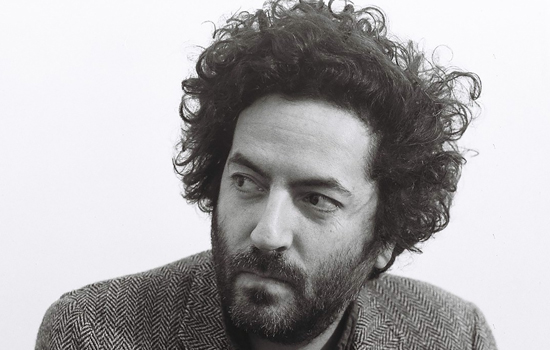
Destroyer aims to soundtrack a spy thriller, not study hall
“I was born with a sound,” Dan Bejar sings on one of his contributions to last year’s New Pornographers album Brill Bruisers. By virtue of Bejar’s arch, conspiratorial voice and his impressionistic-yet-declamatory lyrics, his Destroyer records have a recognizable sound, although the musical trappings have ranged radically since 1996’s lo-fi We’ll Build Them A Golden Bridge, skipping from glammy guitar rock (2001’s Streethawk: A Seduction) to synth-based art rock (2004’s Your Blues) and suave, saxophone-led adult-contemporary pop (2013’s Kaputt).
On the excellent new Poison Season, Bejar weaves two threads together: starkly orchestrated tracks built around a string section and horns as if from a Nino Rota soundtrack, versus more broadly rock tracks that rave up like Young Americans-era Bowie. Sometimes, as on “Hell,” these styles conjoin, but mostly they’re distinct, as on the two versions of “Times Square.”
“In Poison Season, I got up the gumption to do something that I’ve wanted to do for a very long time,” says Bejar. “Which is do a set of songs that have a very heavily orchestrated feel to them, and the strings would make up the core of the song—the song would exist in a lush and romantic and a pre-rock ‘n’ roll setting, maybe.” Fifteen years ago, Bejar was obsessed with Scott Walker’s Scott 3, and he hears its influence in some Poison Season tracks, too.
Much has been made of Bejar’s lyrics—search the web for the rules for a drinking game built around them—but he describes his writing process as intuitive and stream-of-consciousness, less about meaning or themes than about the sound and connotations of phrases, especially now.
“I don’t know if I write this way anymore, but it seems like part of the Destroyer project from 1998 to 2008 or 2009 was to take lyrical inspiration from outside of pop music in a very obvious way,” he says. “And maybe specifically to write and sing in a way to seem like I was more hung up on literature or something than I was on being a singer in a band or getting a piece of music across. When you take on books, I guess, people want to analyze things as if they were analyzing a book, and there are certain traditions or methods of doing that, especially in America, that look for meaning in writing as opposed to function, which is more my scene.”
Bejar sees himself embracing his role as a singer and arranger more on his recent albums, including Poison Season.
“Older Destroyer records seemed caught up in torrents of images and the word flow, almost to an exhausting sense,” he says. “On Poison Season, in a lot of ways I feel the music captures the themes more than the words per se. A couple songs almost feel like spy thrillers or chase music, you know? That’s something I was thinking of: espionage, feelings of global dread, fi gures that are lost in the world. I don’t feel like those are topics; they’re just in the air that we breathe. It does feel like a darker record than most Destroyer records. I don’t know if that’s something to do with aging and decay and the world seeming more like a hostile and unknowable place. That’s what I hear. But I can say all those things, and I have a feeling that most people might not hear them at all.”
—Steve Klinge






